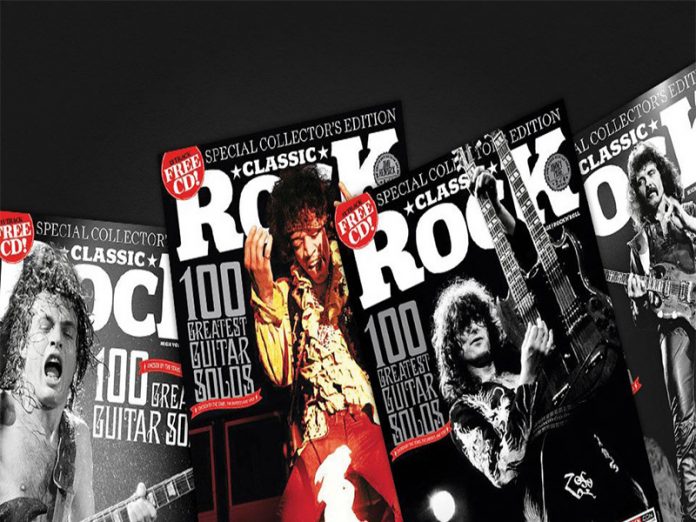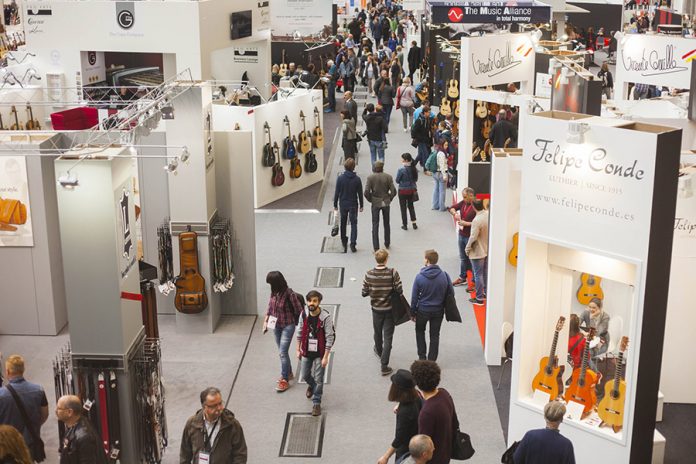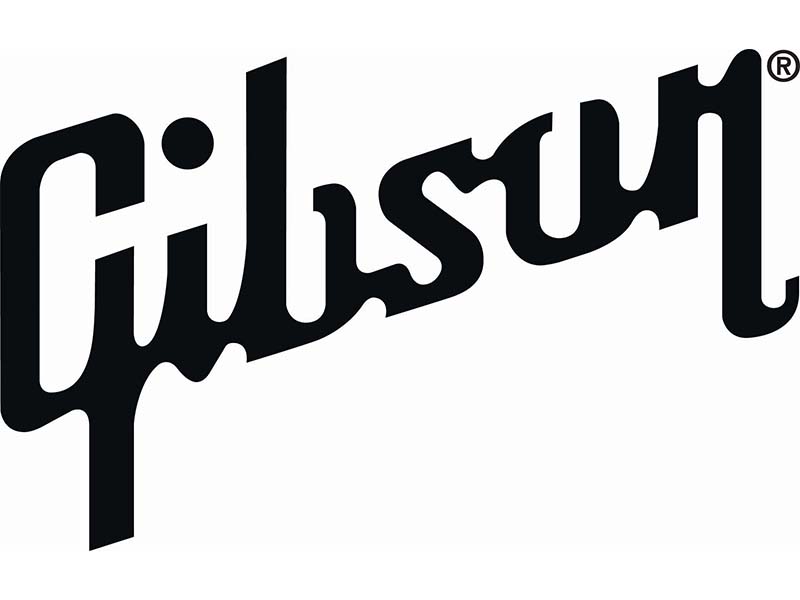January

Last year came to a chilly end with news that Metal Hammer and Classic Rock has plunged into administration, resulting in the loss of 70 jobs. This wasn’t just bad news for the journalists involved – it also added fuel to the growing rumours that rock music itself, the engine driving so many MI sales, was also in serious trouble.
The Scottish based Team Rock company that owned Classic Rock, Prog and Metal Hammer magazines had only bought them from Future Publishing in 2013 in a £10.2 million deal. Apparently the business had debts totalling £11.7 million at the close of 2015, showing you just how much money you can lose if you really try.
But the fun wasn’t quite over in December as, in a move that would have won a round of applause at the National Association of Contortionists annual convention, Future did a double somersault and bought the ailing titles back from the administrator for a miserly £800,000. Now that’s what I call a profit margin!
Zillah Byng-Thorne, Future’s chief executive, was quoted as saying: ‘The acquisition of these classic rock brands with their associated magazines, events and websites marks a further step in our buy and build strategy.’ If that is the case, the sensible question is why Future sold the tiles in the first place, just four years earlier, saying they didn’t fit the company’s growth strategy. What had changed? Future’s growth strategy? The titles themselves? Or was it just too good a chance to miss? Only time will tell if it pays off. Still, full marks for opportunism and a tidy profit!

January also saw the annual carpet bombing run that sees us showered with new product releases at NAMM. Have they all been delivered yet? The longest I can remember a ‘new product’ taking to appear is around 13 months, but I haven’t been holding a stopwatch. In either case it is, I’m sure many readers will agree, all a bit too soon after Christmas and definitely more products than the industry needs. Over-supply… that’s a term I suspect we will be hearing more of in 2018.

Finally, January was the month when the CITES rosewood ban began to bite. I don’t want to see the world’s rainforests chopped down to make Chinese Strat copies but I truly do not believe that the MI industry contributes more than a speck to this problem and I am sure that the non-governmental types who make these rulings rarely have a clue what damage their lofty intentions might cause.
The disruption the CITES rules on rosewood have caused this year have largely gone unreported simply because guitar companies won’t go on the record about the subject, which is a shame. People need to know that the EU and our own local council handed a metaphorical blank cheque to CITES by agreeing to automatically implement whatever they wanted. Mercifully, a similar ban on ivory found in vintage instruments seems to have been avoided (it would have caused untold damage to the secondhand piano market, and for no good reason – the elephants having been dead for decades).
February
 Birmingham played host to 2017’s guitar show this month, an event which seems to go from strength to strength, despite the lack of support from some of the major brands, some of whom, I’m told, consider it a bit ‘downmarket’ for their prestige lines. Really? What alternative do they propose to let potential buyers try their products – Amazon?
Birmingham played host to 2017’s guitar show this month, an event which seems to go from strength to strength, despite the lack of support from some of the major brands, some of whom, I’m told, consider it a bit ‘downmarket’ for their prestige lines. Really? What alternative do they propose to let potential buyers try their products – Amazon?
March

Apart from the steady parade of new products in the run-up to Frankfurt’s Musikmesse (see my comments about over-supply, above) March was a quiet month. Back in February, I’d used my column to, helpfully I thought, suggest why some companies fail to get their products mentioned in the press. As you might expect, those who already knew how to do it continued to do so…and those who didn’t…well, you still don’t read about them!
April

The news of the death of Ikutaro Kakehashi at the age of 87 wasn’t exactly a shock but it marked the end of an era. The founder of Roland, Mr Kakehashi was one of the few people I have heard spoken of with genuine awe by members of the MI fraternity. Those who worked with him and knew him spoke of him reverentially and looking back it isn’t hard to see why. His inventiveness saw his company achieve greatness and he was one of a generation of Japanese businessmen who founded what were to become world-changing companies. Looking at some of them today (both in and outside our own little goldfish bowl) it’s hard not to wonder what went wrong.
Musikmesse came and went and MIN’s own Neil Golding had mildly pointed comments to make about it. To be fair to them, the organisers took it on the chin and have invited us back for 2018. Will it be a success? The jury is out.
Meanwhile, becoming about as regular as a dose of flu, Moody’s announced it was down rating Guitar Center yet again. Cue the usual excited predictions of the giant’s death. See August for more!
May
May saw a post-Frankfurt new products slump and MIN deciding to gauge industry opinion about trade shows. It is sometimes said that if you ask six lawyers a question you will get eleven answers. That seems to be the case with UK trade shows. Even among those who say they would like one, opinions about what, where and when are just too diverse to form a conclusion. Moreover, given how little profit such an event could hope to make, who would take the gamble?
June
 The Washington Post didn’t so much put a cat among the pigeons in June, as drop a Siberian tiger straight into the hen house by proclaiming that the electric guitar is well and truly dead. WaPo’s Geoff Edgers claimed sales are massively down and pointed to a shortage of guitar heroes inspiring new adopters. The industry’s response was a whimper of outrage – not surprisingly as Edgers had made a fair point. In that same month (to strike a personal note) I finally achieved escape velocity from the consumer guitar publication I had been editing for the past seven or so years and I can tell you that Edgers was spot-on about a lack of guitar heroes. The heady days when ‘Clapton is God’ was spray painted all over England have gone for good and just how many times can you run a Jimi Hendrix retrospective? Under pressure, I once suggested a seance to get a fresh interview with him but, on reflection, it would probably take a seance to get any sense out of quite a few of the guitar heroes who are still allegedly alive. The electric guitar isn’t dead, it’s just ‘aving a kip, as Monty Python might have said having, dare I say it, finally widdled itself into irrelevance.
The Washington Post didn’t so much put a cat among the pigeons in June, as drop a Siberian tiger straight into the hen house by proclaiming that the electric guitar is well and truly dead. WaPo’s Geoff Edgers claimed sales are massively down and pointed to a shortage of guitar heroes inspiring new adopters. The industry’s response was a whimper of outrage – not surprisingly as Edgers had made a fair point. In that same month (to strike a personal note) I finally achieved escape velocity from the consumer guitar publication I had been editing for the past seven or so years and I can tell you that Edgers was spot-on about a lack of guitar heroes. The heady days when ‘Clapton is God’ was spray painted all over England have gone for good and just how many times can you run a Jimi Hendrix retrospective? Under pressure, I once suggested a seance to get a fresh interview with him but, on reflection, it would probably take a seance to get any sense out of quite a few of the guitar heroes who are still allegedly alive. The electric guitar isn’t dead, it’s just ‘aving a kip, as Monty Python might have said having, dare I say it, finally widdled itself into irrelevance.
July

July saw the loss of the great guitar maker, Bill Collings, a man even grumpier than myself but with the redeeming feature of being a phenomenally talented craftsman who made superlative instruments. Thankfully, his business lives on and his name with it.
July also saw a rather low key Summer NAMM and the curious news that Blackstar had undergone a management buyout, closely followed by the announcement that it was merging with the company that produces Auden acoustic guitars and which owned the veteran British guitar brand Gordon Smith. Given the troubles facing the guitar amplification market, adding guitars to the portfolio probably makes sense. I’m not sure, though.
August

Back in April we saw US credit rating agency Moody’s downgrading its forecast for the ailing Guitar Center chain. Leaving aside the vacuum it would create in US MI retail were its owner to pull the plug, if GC went under it would undoubtedly take a fair few MI suppliers with it. One of those might be Gibson which, in August, was on the receiving end of a similar bashing from Moody’s, which said: ‘We feel that Gibson’s capital structure is unsustainable due to the uncertainty over its ability to refinance debt that comes due in July 2018 and August 2018 given its very high leverage and weak operating performance.’
Meanwhile, the agencies are at it again this month (December 2017). Standard & Poor’s has just downgraded Guitar Center’s rating to CCC- from CCC+, noting that it: ‘is currently negotiating with its noteholders for a potential debt exchange transaction.’
S&P went on to add: ‘We think debt holders could receive less than par and/or the original promise on the current debt — a scenario we would view as a distressed transaction and tantamount to a selective default.’
The rating agency also lowered Guitar Center’s debt outlook to negative, reflecting its view that ‘a debt exchange transaction could occur in the near term, based on our expectations that operating trends will not materially improve ahead of its debt maturities in April 2019.’
Reuters helpfully chipped in, saying: ‘musicians can now buy their instruments online from Sweetwater Sound Inc., as well as directly from guitar makers themselves, such as Fender Musical Instruments.’ It twisted the knife further still with: ‘The industry’s challenges have been compounded as the newest generation of teens has shifted its focus from guitars to consoles, smartphones and sports. The electric guitar has been virtually absent from the Top 20 music charts in the past five years.’
The now routine downgrading of companies like GC and Gibson may be lulling the industry into a false sense of security. Like rumblings from a volcano, after a while the locals just shrug them off. But one day the lid will blow. It’s just a matter of when and how hard. Older readers will recall the endless ‘Is Arbiter going down this time’ saga? In the end, it did. It just took time.
September

I can’t avoid reporting that September saw Gold Media, which owns MIN, launch its Manchester based The UK Drum Show. It was a great success, much to the disappointment of some. It also saw another of Roland’s huge, international online product launch events, which are typically far-sighted and may point the way to the future of large shows. Can a virtual experience ever challenge ‘the real thing’? Maybe, one day they will.
October

The case of the fake website came to light this month, with some dodgy geezer cloning Dawsons’ retail website, claiming to be selling Epiphone guitars at eye-wateringly low prices. No one has yet managed to find out who is behind this attempted scam but it seems the sites are multiplying, as a few weeks later, another, this time selling home studio gear, emerged. One MIN reader contacted us to say he had tried to make a purchase from the site but that his credit card company had intercepted the transaction. Just as well.
November

Frustrated by the deafening silence from the marketing departments of some of the industry’s largest companies, in November I wrote a caustic column about marketing. Almost as if by magic I started to get Linked In requests from marketing managers. But that’s all. Just Linked In requests…
December

So far the big news this month has been the sale by Robert Wilson MBE of Sound Technology to a company from outside the MI industry. No doubt age played its part in his decision, as even a force of nature like Mr Wilson must eventually think about taking life a bit easier. Meanwhile, I can’t help looking at the situation and watching with fascination to see what Samsung will make of all the brands it acquired when it went out for lunch one day and came home with Harman, a diet Coke and a bag of cheese and onion crisps. The general wisdom at the time was that Samsung wanted Harman’s in-car technology. So what will it do with components like Digitech, Soundcraft, dbx and JBL? Of course, if I knew the answer to such questions, I would be rich and I’m not. But I would be surprised if we don’t see management buyouts, sell-offs or even brand mothballing in the years to come. I wonder if Uli Behringer is thinking the same?

Finally this year came the news that MI Pro had bitten the dust. Contrary to what might be expected, journalists hate to see even rival publications go under as it means the market they are in is shrinking – and we all know what that feels like! On a personal note, having been a contributing writer to MI Pro since its first issue, I felt it was sad (not to say rude) that no mention was made of the many successful years MI Pro had under the leadership of its founders, Gez Kahan and Phil Johnston, before a series of unfortunate events led to Stuart Dinsey’s Intent Media taking over, itself swallowed-up later by the American publisher NewBay. Under Intent, which did not launch the title, it never regained the hard-hitting analysis that characterised Gez’s editorship and under NewBay it suffered from a progressive lack of experience at the helm. They say a country gets the politics it deserves and I suspect the same is true of industries and their trade magazines, so please help us keep the industry informed and communicating with itself by sending us news and, better still, all the scurrilous and disrespectful gossip you can find!
From Music Instrument News (both of us) we wish all our readers a very Merry Christmas and a Happy New Year!


